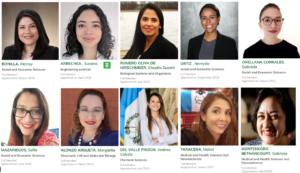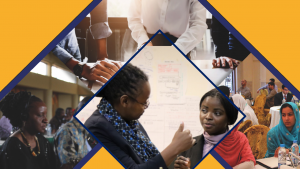Promoting Policy Dialogue in Harare
 On Monday 7th July 2014, the Zimbabwe Evidence Informed Policy Network (ZeipNET) hosted the first in a series of Policy Dialogue events. The aim of these Policy Dialogues is to open discussions around key national policy issues, bringing government together with relevant members of the society such as the private sector, journalists, researchers, social leaders, etc. This series will help to bridge the research-policy divide and engage relevant stakeholders in the policy-making process.
On Monday 7th July 2014, the Zimbabwe Evidence Informed Policy Network (ZeipNET) hosted the first in a series of Policy Dialogue events. The aim of these Policy Dialogues is to open discussions around key national policy issues, bringing government together with relevant members of the society such as the private sector, journalists, researchers, social leaders, etc. This series will help to bridge the research-policy divide and engage relevant stakeholders in the policy-making process.
ZeipNET is part of VakaYiko; a consortium of five organisations involved in building the
capacity of policy-makers to recognise, articulate and act on research to shape better policy.
The first Policy Dialogue was held in Harare, Zimbabwe and focused on improving trade and industrial policy coordination and dialogue between the government and private sector. Director General of the Standards Association of Zimbabwe, Eve .C Gadzikwa, attended and chaired the Policy Dialogue. We asked her a few questions about how she found this first event:
1. What were the highlights of the Policy Dialogue for you?
Finding common ground was very interesting. It seemed like we already knew the problems (even before they were highlighted in the plenary) because, although groups were working independently, we were all able to articulate the solutions without having knowledge of what other groups were discussing. What became clear is that defining the problem is not an issue (although it is still important) – the problem is with implementation. It was interesting to note that participants were able to agree on the common themes at the end of the dialogue which is a good basis to craft a common vision on the way forward.
2. Do you think having a series of Policy Dialogues on different subjects will add value to the national policy environment?
Dialogue is very important especially at this point in Zimbabwe’s development. Wide consultation is key to get buy-in – especially from the private sector and policy makers. Decisions have to be made collectively and take into account the views of other stakeholders. This approach creates a sense of ownership and facilitates implementation of policies, programs and activities. Failure to listen to other people’s views only serves to kill the spirit of development and creates mistrust.
3. What would you like to see at the next event?
a) I would like to review the evaluation of the two policy documents we discussed at the Policy Dialogue, the Industrial Development Policy (IDP) and the National Trade Policy (NTP) and consider how the outcomes dovetail with the Zimbabwe Agenda for Sustainable Socio-Economic Transformation (ZimAsset). I believe an important next step would be to recast the two policies that we discussed, as well as other policies (e.g. Science and Technology, Agriculture, Mining policies), to align them with the five year ZimAsset economic blue print.
b) The next step is to workshop a clear Plan of Action, Key Performance Indicators, Budgets, Accountability structure, and Monitoring and Evaluation framework.
c) Foreign Direct Investment engagement
4. Is there anything else you would like to share?
I’d like to show you a newsletter from Commonwealth Partnership for Technology Management, UK (a Smart Partnership Dialogue convener) from which we are learning. I have personally participated in some of their dialogue sessions in London together with a member of the National Economic Consultative Forum, and I can confirm that National Visions can be achieved if we focus on the practical aspects of our national development agenda.




